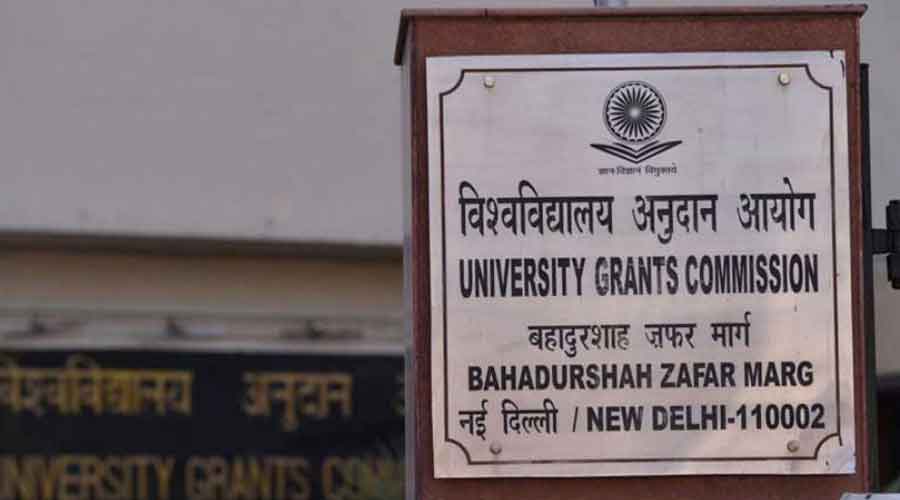Several academics on Saturday accused the University Grants Commission of using different yardsticks for Indian public-funded universities and foreign universities that want to set up campus in India, particularly when it came to online education and the freedom to decide fees and pay scales.
While the UGC’s draft regulations for the entry of foreign universities debar these institutions from offering online or distance-mode courses, the higher education regulator has been pushing the central universities, which it funds, to offer more online programmes.
Many academics have long argued that online courses hurt the quality of education.They have accused the government of looking to destroy public universities so that private institutions can flourish, in the process putting higher education out of reach for the poor.
“The UGC not allowing foreign universities to offer courses online (in India) means it recognises that quality is the casualty in online education. But the government is pushing online education for public-funded institutions,” Nandita Narain, a faculty memberat St Stephen’s College under Delhi University, said.
She highlighted how the UGC’s regulations on the Academic Bank of Credits and Massive Open Online Courses together allow students to pursue nearly 70 per cent of their courses online, partly at their parent institution and partly at another. The government is also set to enact a law to start a National Digital University that will allow a student to pursue any course fully online.
Narain also flagged how the draft regulations give foreign institutions much more freedom than most of their Indian counterparts -- on fees, pay scales and course design-- setting the stage for the exploitation of students and teachers with high fees and low pay.
R.P. Tiwari, vice-chancellor of the Central University of Punjab, said: “To ensure that the quality of education offered by the Indian campus of the foreign university is same as on its main campus(abroad), these institutions should pay the same salary to teachers, have the same recruitment rules and follow the same teaching and evaluation methods as on their main campus. At least 70 per cent of the curriculum should be the same as on the main campus.”
The CPM politburo on Saturday asked the UGC and the government to drop the move to facilitate the entry of foreign educational institutions.
“Access to higher education is under a grave threat now for students who are at the receiving end of economic and social inequalities.The proposed move is not going to enable the country to address the current challenges that face higher education,” it said in a statement.
Feedback on the draft regulations has been sought byJanuary 18.
Rajesh Jha, a faculty member at Rajdhani College under DU, said the government wanted to deny a level playing field to public universities, hampering them from competing with private and foreign institutions.
“The government has reduced funding to the public universities. It is giving loans in the place of grants,” he said.
“No new teaching posts have been created to accommodate the increased student intake because of the Economically Weaker Sections quota and the lengthened programme duration with the impending introduction of four-year undergraduate courses. In a few years, public universities will lose their standing.”
The draft regulations have already provoked quality concerns by making foreign universities ranked among the top 500 ---overall or subject-wise -- by any global ranking agency eligible for entry. The National Education Policy had earlier suggested top 100 ranking as the criterion.
As for foreign higher education institutions other than universities, they are eligible if they are considered “reputed”, a term the regulations fail to define.
The proposed regulations also leave it unclear whether the foreign varsities can repatriate their profits. Education is a not-for-profit activity in India,with any surplus required to be ploughed back into the institution’sexpansion plans.











